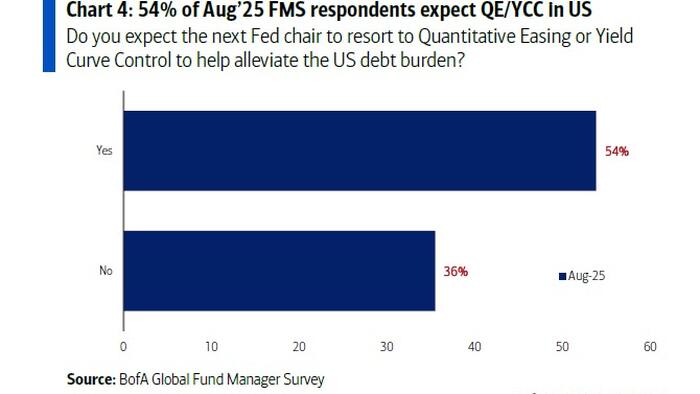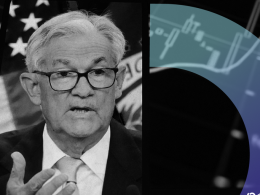In a rapidly evolving financial landscape, renowned Bank of America Chief Investment Officer Michael Hartnett has made a compelling case for increasing allocations to gold and cryptocurrencies. This recommendation comes as the yield curve control appears imminent, raising concerns about the broader implications for investors. As of 2025, Hartnett’s insights serve as a crucial guide amidst ongoing economic fluctuations.
Just a week after highlighting critical indicators that suggest the potential bursting of the AI bubble—an event deemed unlikely by partners at Market Ear due to Nvidia’s significant market position—Hartnett shifts focus to the upcoming Jackson Hole Federal Reserve symposium scheduled for next Friday. This annual economic conference is pivotal, signaling potential shifts in monetary policy that could impact various asset classes.
In his weekly “Flow Show,” Hartnett begins with a summary of the current market sentiment, emphasizing a prevalent trend: selling the US dollar. According to the latest Fund Manager Survey, the dollar remains one of the most crowded trades in the current market environment. There are several reasons for this sentiment, notably the swift central bank rate cuts observed in 2025—88 rate cuts have been enacted this year alone. This marks the fastest rate-cutting cycle since the disruptions caused by the COVID-19 pandemic in 2020.

As central banks around the world react to economic pressures, Hartnett suggests that investors should reassess their portfolios, particularly regarding their exposure to gold and cryptocurrencies. The rationale is straightforward; with traditional financial systems facing instability, alternative assets like gold and digital currencies may provide a hedge against potential market downturns.
“It would be wise to consider increasing allocations to gold and crypto amidst the current economic uncertainties,” Hartnett advises.
This call for increased investment in alternative assets aligns with a broader trend observed in the market. As central banks continue to implement aggressive monetary policies, the appeal of gold as a safe haven asset becomes more pronounced. Furthermore, the growing acceptance of cryptocurrencies as legitimate investment vehicles enhances their attractiveness in a diversified portfolio.
Investors are encouraged to stay informed about the outcomes of the Jackson Hole symposium and other economic indicators that may influence market dynamics. The implications of these changes could be significant, particularly for those heavily invested in traditional assets.
In conclusion, as we navigate through 2025, the insights provided by Michael Hartnett serve as a vital reminder of the importance of adaptability in investment strategies. By considering options such as gold and cryptocurrencies, investors can better position themselves to weather potential economic storms and capitalize on emerging opportunities.
For more detailed information, refer to the original article on Zero Hedge.








